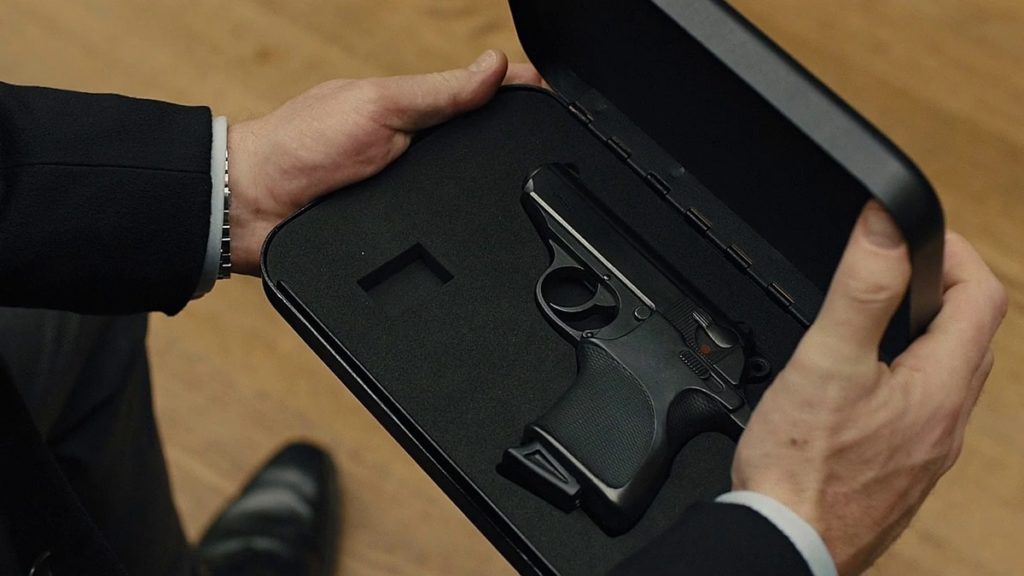I'm not entirely against the idea of this to some degree. However, there are a number of challenges with it. First and foremost, if this gains any traction the problem you'll have is that retrofits to existing designs will almost be pointless as they'll be defeated simply by taking the gun apart and retrofitting the weapon with the older more conventional parts.
Take a Beretta 92FS or SIG P226 for example. They've been in service with militaries and law enforcement agencies around the world for decades. The parts to fix these and even the older versions of these weapons are abundant on the new and used market. The Glock aftermarket is enormous to a point where you can build a Glock without any Glock parts in it. That's basically a non-starter right there.
I'm not saying the technology doesn't have its upsides, but that's a pretty big downside.
Yeah, the more I think about it...
On one hand, I'm not really against it. It could do a lot against gun theft, kids, etc. And it's not like anyone is saying you have to trade in your old gun for one of these, or install one of these in your existing weapons (yet, at least). So people who want this, sure, go for it.
What it will do is cause states like California to adopt it into law as a requirement for all new firearms sold in the state, similar to the way it did with microstamping. However, older guns are grandfathered in with existing laws, so it makes the idea pointless. All it does is mean that California can't get newer models of guns as a result. Companies like Glock still produce the Gen3 guns for that state to get around the microstamping law.
The problem is that some politician will drive this like it will reduce or eliminate gun crime. However, from a legal standpoint, it will either be struck down or implemented so poorly as to accomplish nothing but cause law abiding citizens grief.
As it is, a biometric locked Glock wouldn't be a problem for a teenager if they can gain physical access to the weapon and have a garage with basic tools in it. A teenager can simply order Glock parts to work around the system and simply change out the biometric stuff for conventional parts. The technology being applied to existing models would be easy enough to defeat. It would almost require new weapons to be designed where the technology was entirely integral and no physical work arounds exist. It would also require the law to be changed to prevent companies from designing and building and then selling workarounds for these components.
Even then, it wouldn't necessarily stop people from building their own workarounds.
On the other, a good lock or gun safe does pretty much the same thing without needing any modification to the gun or anything high tech that could go wrong (something as simple as a dead battery). It wouldn't do anything to prevent any of the mass shootings that have gone on - seems like most of those are done with legally obtained weapons.
Most residential security containers can be defeated in seconds to a couple of minutes. Furthermore, this type of system could cost lives if it fails in the moment. A backup requiring you to operate an app on your smart phone will get people who need to defend themselves killed. No one has time for that in the moment. Gun enthusiasts, law enforcement and military professionals debate the merits of the manual safety and some of them cite that as being a liability that can get you killed. This nonsense will only go over well with people who have man buns and eat avocado toast.
You are quite right in that this type of technology wouldn't do much if anything to curb mass shootings. The reason being that it doesn't address the underlying reasons why people commit those types of acts in the first place. If you look at most of the mass shooters backgrounds and personalities you start to see patterns emerge. There are some aberrations that defy the pattern, but for the most part its the same basic story every time.
No one in politics will ever admit that the issue here is and never has been firearms. It's people choosing to commit acts of violence. That's not something that can be fixed with the law. It has to be fixed through social and economic changes that lead to the violence in the first place. That's a lot easier said that done and even if we could waive our hands and do that overnight, you would still have people who would defy the pattern and simply choose to kill for whatever reason.
I wouldn't go so far as to say most of these guns were legally obtained though. Many of them were, but many of them weren't. While there are certainly cases where they were, there are cases where they either were not obtained legally, or it was only possible for them to be obtained legally through clerical errors or because mental health conditions in some of the shooters were never properly diagnosed. This kept them from having their right to purchase and own firearms from being restricted by NICS.
None of the school shootings that occurred at the high school and below level were obtained legally as the shooters were underage. Many of the shootings that have taken place in other countries were done with firearms that were not obtained legally.
The fact is, when someone wants to kill people they will find a way to do it. In countries where gun control is far more strict than it is here, they beat people to death or use another means. There was a mass shooting with a bow and arrows not too long ago. A truck full of fertilizer or dynamite are far more effective and deadly than firearms are.
The only advantage I could see for biometrics as opposed to a good lock is the intruder case - where you keep the weapon in a nightstand or by the bed or in the glovebox - it eliminates the need to physically unlock a weapon prior to use, while still keeping it safe from unauthorized use. Provided, as Zarathustra mentions, it works flawlessly.
In that context, I think it's neat, but I don't see it solving any real issue pertaining to firearms or the people who get ahold of them.
In theory, it would solve only a couple of problems if it worked perfectly. It would prevent cases where a child or some other unauthorized person grabbed the gun and committed suicide either on purpose or accidentally. Every now and then you hear a story about some toddler shooting themselves. The technology would add an extra layer of safety in situations where the parents are negligent enough to allow those sorts of things to happen. If you ask me, those same kids are ****ed anyway because their parents are ****ty.
For law enforcement, it could prevent officers from being shot in situations where the criminal manages to get the weapon from the officer. I don't know how prevalent this problem is, but at one time it was a real issue which is what led to additional retention levels on holsters carried by law enforcement.
All of this aside, this technology wouldn't solve anything for the simple fact that over 100 million guns without the technology are already in the hands of private citizens today. The technology might prevent kids from killing themselves or their parents in a home where conventional firearms aren't present, but it will do nothing to prevent mass shootings or curb gang violence or anything like that.



